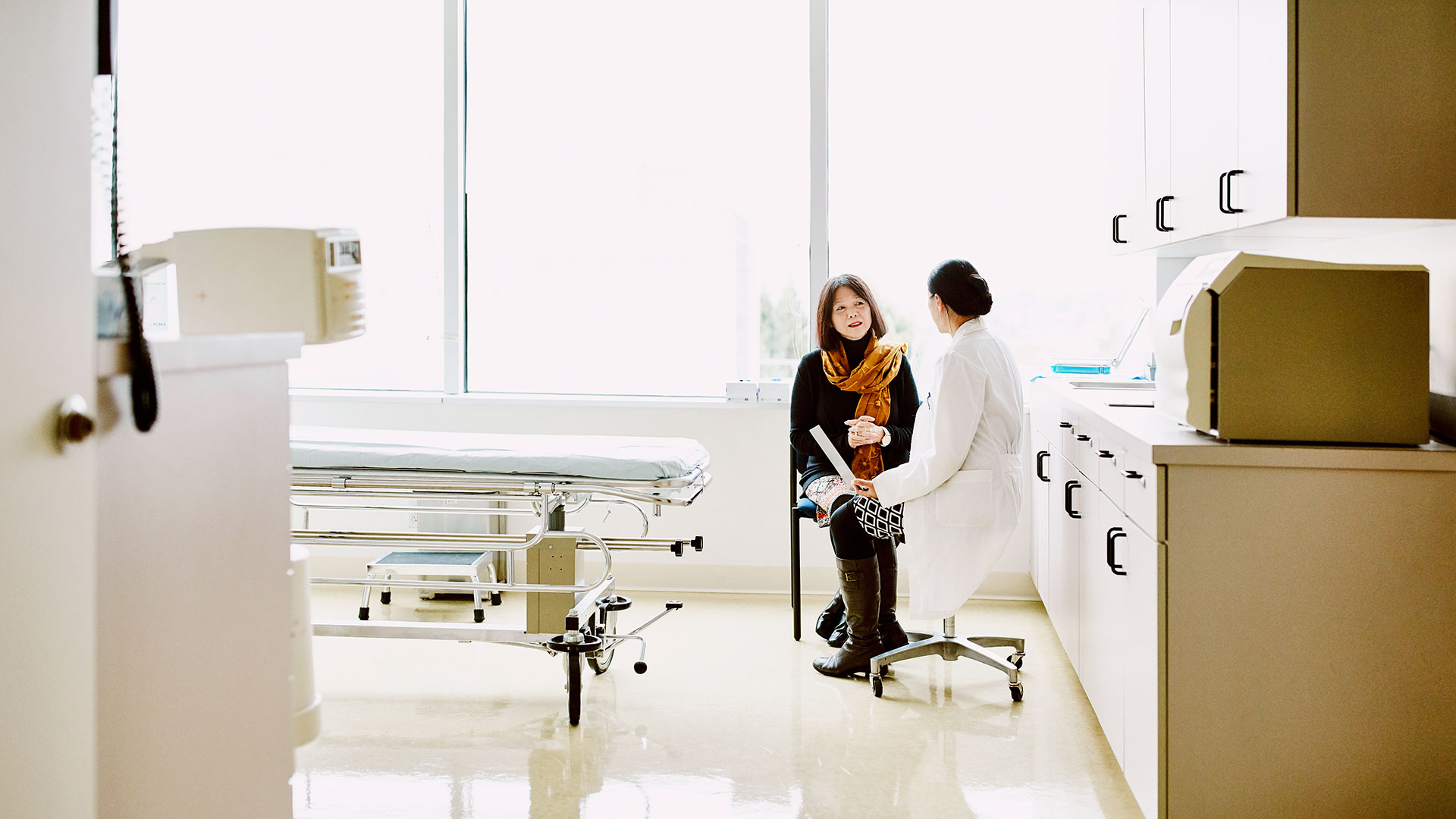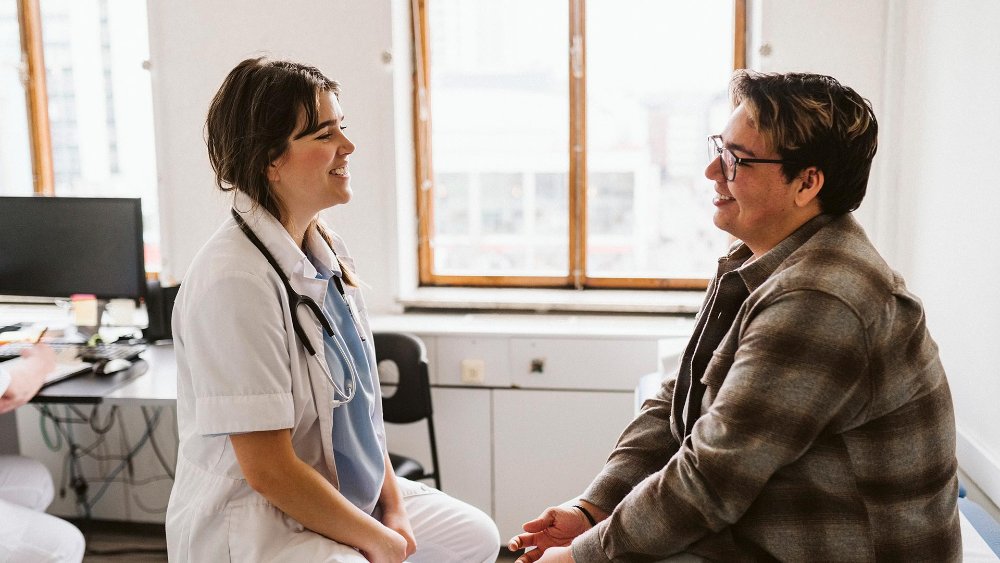
Cancer is the second leading cause of death in the U.S. and this year, an estimated 1.9 million Americans will be diagnosed.
Whether you’ve had a personal journey with it, or know someone who has, sadly, cancer touches everyone at some point in their lives.
A report from the Kaiser Family Foundation earlier this year, however, provides a glimmer of hope.
Cancer mortality rates across all racial and ethnic groups also saw a downturn during the same period.
Much of this progress is attributable to increased health education and awareness, behavior changes such as smoking cessation, and reasonable access to vital preventative screenings.
"Between 2013 and 2018, cancer incidence rates decreased for all racial and ethnic groups, and the largest decrease was among American Indian and Alaska Native (AIAN) and Black people."
Despite Progress, Disparities in Cancer Care Persist
Although the largest decrease in cancer mortality rates was among Black people, this population also continued to have the highest cancer mortality rate in 2018.
New cancer rates for prostate, colon and rectum cancers are also higher for Black people, and they have one of the highest rates of new breast cancers.
Differences are also seen in certain locations.
Americans living in rural areas have a higher incidence of preventable cancer and mortality compared to those in urban areas. Incidence rates are also higher in urban areas for certain types of cancer, such as breast and prostate cancer.
Of course, we can’t have a discussion about cancer without talking about the effects of COVID-19.
In the beginning of the pandemic, doctors’ offices and screening centers temporarily shut down and people weren’t seeing their primary care doctors or getting preventive screenings.
When provider offices eventually reopened, however, many patients were apprehensive about going to hospitals and screening facilities out of fear of being exposed to the virus.
In 2020, the U.S. saw a deficit of an estimated 9.4 million cancer screenings.
Research and clinical trials also came to a halt.
As people return to primary care and schedule their screenings, there’s concern that we’ll see an uptick in cancer diagnoses, and advanced stage cancers.
Particularly in rural areas, we may also see cancer screenings delayed because of ongoing clinical labor shortages that can’t meet the demand.
In fact, within the next 5 years, the U.S. could face a shortage of 3.2 million workers in lower-wage positions such as medical assistants, home health aides and nursing assistants.
Some people will go undiagnosed and, sadly, we expect mortality rates to increase.
As I’ve written previously, there is also a lack of trust in the healthcare system among Blacks and minority groups due to healthcare disparities, implicit biases and false notions, which prevent people from getting care that could save their lives.
Although cancer screenings are returning to pre-pandemic levels, we’re still seeing those for breast, colon and cervical cancers lower than historic baselines, at a rate of 2.7%, 3.4% and 10% respectively.
A recent study in The Lancet found the risk of death from colon cancer increases 6% every 4 weeks that surgery is delayed. Similarly, delays in chemotherapy for colorectal cancer increase the risk of mortality by 13%, another study found.
There are concerns for those diagnosed with cancer as well. Many face financial toxicity—worry about the cost of care and treatment which may lead them to avoid taking or even paying for their medications.
Research shows financial toxicity is more likely to affect women, younger patients, those with co-morbid conditions, and those with lower income at the time of diagnosis.
Learnings from COVID-19: Access, Awareness and Literacy
During COVID-19, some health systems in the U.S. developed creative solutions to increase cancer screenings.
These solutions are part of a larger initiative, the Return-to-Screening study, a collaborative effort of the American College of Surgeons and the American Cancer Society. Nearly 750 cancer programs were enrolled in the study.

The accredited cancer facilities that were part of the study focused on efforts to raise awareness of screenings, including patient education and social media campaigns, doctor outreach and extended hours.
At Northeast Georgia Medical Center, internal medicine residents tracked patients who were overdue for screenings and reminded doctors to order their exams.
They also held community luncheons and ran social media campaigns that were translated into 5 languages. Over a 6-month-period, they used 40 different interventions and performed 15,284 mammograms—more than 900 mammograms over their goal.
At Henry Ford Health in Detroit, their staff held virtual focus groups to identify barriers and increase mammograms among African American and Hispanic women.
Interestingly, transportation and childcare were less of an obstacle than they thought they would be.
Rather, women didn’t know they needed the exams, or they worried about what the results would show.
They then connected with parish nurses at local churches to educate women and contacted patients to make appointments.
As a result, they increased mammograms for African American women by 17% and for Hispanic women by 25%.
As a result of the Return-to-Screening study, 814 quality improvement projects were started with the goal of adding 70,000 screening tests in 6 months.
The risk of death from colon cancer increases 6% every 4 weeks that surgery is delayed.
In 2020, the U.S. saw a deficit of an estimated 9.4 million cancer screenings.
of large employers anticipate an uptick in medical services due to delayed care.
The Role of Employers in Addressing Disparities in Cancer Care
With healthcare costs expected to increase 6.5% this year and 94% of large employers anticipate an uptick in medical services due to delayed care, tackling cancer screenings is vital.
Employers must actively work on:
- awareness and education efforts for preventative screenings, including marketing virtual primary care
- encouraging wellness offerings with education around nutrition, smoking cessation, substance use and the risk of environment carcinogens.
Those with employer-sponsored primary care programs should also see a rise in screening rates.
Although biometrics and genomics screening may be a valuable tool for some types of cancer and for those with a strong family history, they can lead to unnecessary testing and anxiety for patients. For the general population, the verdict is still out on how to use data to inform care.
Companies should also think about how they target certain populations.
For example, some employees in minority groups who work multiple jobs to make ends meet are often forced to reschedule appointments or delay care, so campaigns should target these employees in a way that resonates with them.
At Alight, we leverage artificial intelligence and machine learning to deliver hyper-personalization— an always on, omni-channel communication program that increases engagement in specific activities that lead to desired outcomes. In the case of cancer, Alight can help target and motivate specific employees to get recommended preventive screenings, like mammograms and colonoscopies. For employees with a cancer diagnosis, we encourage them to reach out to our Health Pros and Medical Allies by highlighting the range of ways in which we can support them.

Using targeted analytics and nurse-led outreach, we engage newly diagnosed participants in expert clinical guidance to help them and their families get the personalized care they need.
-
Early identification after diagnosis with a clinical algorithm
-
Recommendations to high-quality oncologists from NCI-designated cancer centers and other centers of excellence (COEs)
-
Customized education and evidence-based content for the individual’s specific cancer
-
Expert medical opinions, which can include multidisciplinary oncology teams (consults with the nation’s top medical, surgical, and radiation oncologists that virtually collaborate on a given case)
-
Compassionate, ongoing emotional support from a dedicated nurse on our Medical Ally team each step of the journey
For more information or examples of how Alight supports each unique individual when it comes to education, prevention and personalized guidance around cancer, please reach out.


